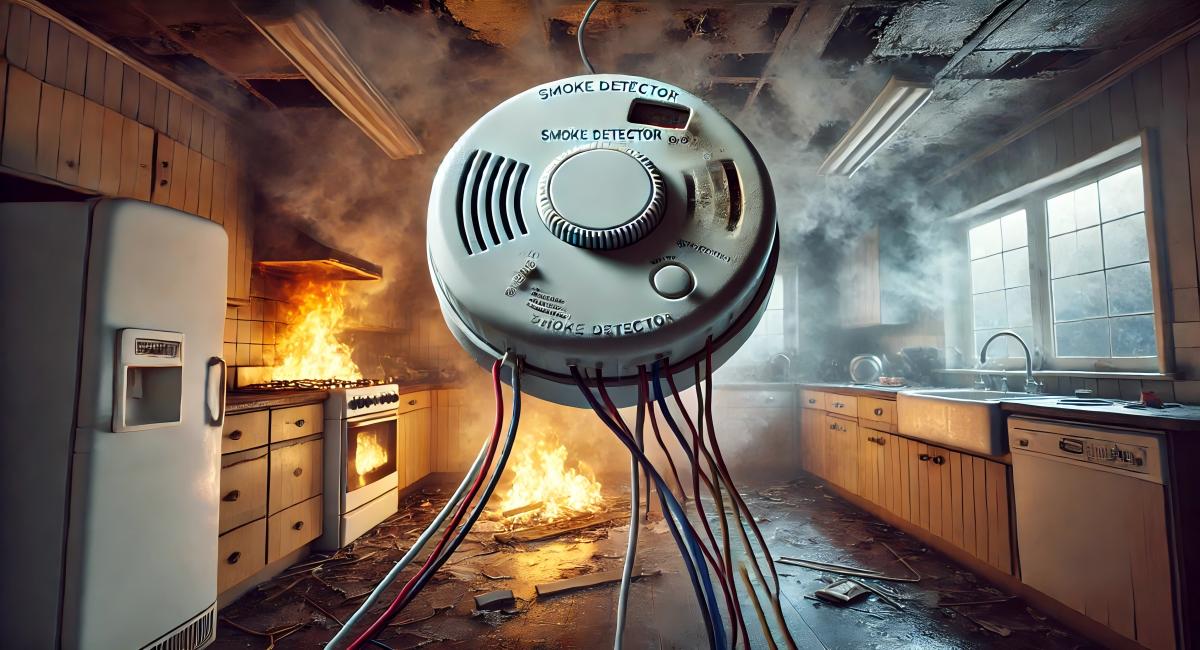
Smoke alarms are essential safety devices in any home, and the market offers a wide range of models at varying price points. Many may wonder why some smoke alarms are priced lower than others. The answer lies in the differences in materials, design, and manufacturing processes. Below, we’ll explore the key factors that determine the cost of smoke alarms.
1. Battery Type and Quality
The battery is one of the most crucial components of a smoke alarm, and different types of batteries have a significant impact on the cost. Low-priced smoke alarms typically use standard batteries that require regular replacement. While the initial purchase cost may be low, the need for frequent battery changes adds to the long-term cost. In contrast, higher-end smoke alarms often come with long-lasting lithium batteries, which can last up to 10 years, offering hassle-free, reliable protection over time.
2. Casing Material and Design
The material and design of the smoke alarm’s casing directly affect its durability and price. Lower-priced smoke alarms usually use basic plastic materials, which can fulfill basic needs but may lack fire resistance and impact durability. High-end products often feature casings made from more durable, fire-resistant materials, ensuring the device continues to function even in extreme conditions. Additionally, the complexity of the design can impact manufacturing costs; cheaper models tend to have simpler designs to keep production costs down.
3. Conformal Coating Protection
Conformal coating (protection against moisture, dust, and corrosion) is an essential layer that protects the circuit board, especially in humid or dusty environments. High-end smoke alarms often have their circuit boards coated with conformal coating, allowing them to perform more reliably in harsh environments. In contrast, cheaper models may skip this protective layer to reduce costs, which can lead to lower reliability, particularly in challenging conditions.
4. Interference Resistance Design
Electromagnetic interference (EMI) can cause smoke alarms to trigger false alarms or malfunction, especially in homes with many electronic devices. High-end smoke alarms often include interference-resistant components, such as anti-interference shielding, to ensure stable performance in complex electromagnetic environments. Cheaper models typically lack such protection, making them more susceptible to interference from other devices.
5. Insect-Proof Mesh
Another factor affecting the price of a smoke alarm is whether it includes an insect-proof mesh. This mesh prevents small insects from entering the device and disrupting the sensors. Many low-cost smoke alarms do not include this feature, which could lead to false alarms or malfunction over time if insects enter the unit. High-end models, on the other hand, are often equipped with a fine insect-proof mesh to ensure long-term reliability.
6. Other Detail and Feature Differences
In addition to the above factors, cheaper smoke alarms may differ from premium models in several other areas:
●Sensor Accuracy: Low-cost models may use basic sensors that meet minimum detection requirements but may lag behind high-end models in terms of speed and sensitivity.
●Alarm Volume and Sound Quality: Some low-priced models may have weaker alarm sound quality or lower volume, which could impact their effectiveness in emergencies.
●Design and Installation Options: Cheaper smoke alarms tend to have simpler designs and limited installation options, while higher-end models may offer more aesthetically pleasing designs and versatile installation methods.
Conclusion
The Cost of smoke alarms comes down to several factors, including battery quality, casing materials, the presence of conformal coating, interference resistance, and insect-proof features. These factors determine the durability, reliability, and long-term performance of the product. While low-cost smoke alarms can provide basic protection, they may not perform as well or last as long in complex environments. Therefore, when choosing a smoke alarm, it's important to consider not only the price but also the overall performance of the device to ensure the best protection for your home and family.
Post time: Oct-25-2024











